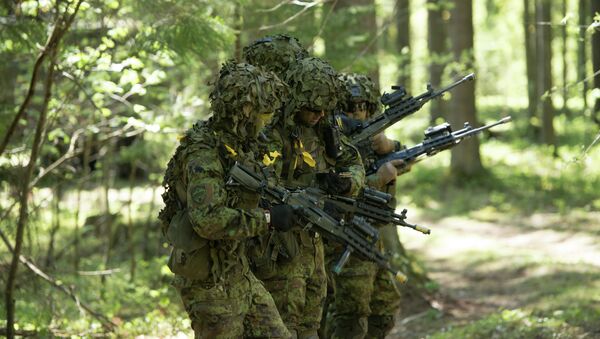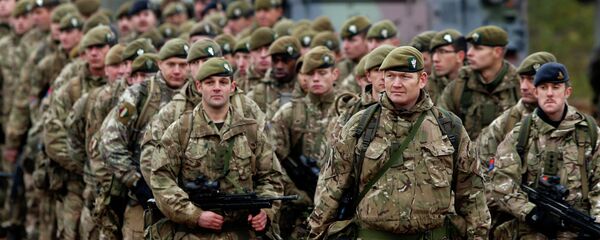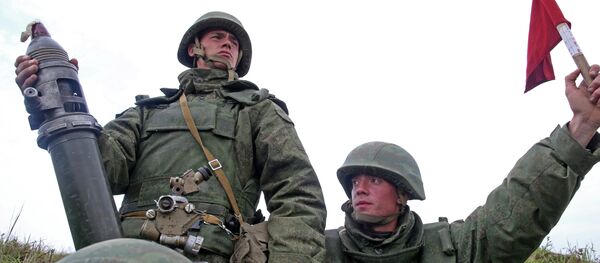Estonia, Lithuania and Latvia are beating the drums over the "inevitable" Russian invasion: giving up their hopes for NATO troops' permanent presence in the region, they are preparing to confront the "danger" on their own; however, they have yet failed to present any evidence confirming Russia's "malicious plan."
"With western Europe reluctant to permanently base troops in the region, the Baltic countries, and even regional powers like Poland, are increasingly relying on their own resources — although a NATO base with German, American and other allied troops permanently located in the region remains the goal," journalists Jan Cienski and Linda Kinstler noted.
At the same time Poland kicked off an ambitious ten-year $42 billion defense project including a missile defense shield, anti-aircraft systems, submarines, combat drones and armored personnel carriers.
"No doubt there will be a fight. Estonians are stubborn people, and they're still living through their traumatized memories of 1939-40 (when the country was incorporated into the USSR)," said Raivo Vare, an Estonian former politician as quoted by Jan Cienski and Linda Kinstler.
Interestingly enough, Finland with its 1,340 km (833 miles) long border with Russia has not been gripped by a Russophobic hysteria: according to polls an overwhelming majority of Finns believe that it is highly unlikely that Russia would threaten Finland's security. It should be noted, however, that the period of 1939-1940 was no bed of roses for both the USSR and Finland: just before the Second World War the two nations fought in the Finnish-Russian War.
According to Neil Clark, a journalist, writer and broadcaster, relations between Russia and the Baltic states have long been based on friendship and mutual respect. And it is NATO who is escalating tensions in the region through its military maneuvers near Russia's borders.
At the same time Western "hawks," who kicked off an anti-Russia propaganda campaign last year and groundlessly blamed Moscow for everything, including the crash of the notorious MH17 flight and appearance of mysterious submarines in the EU waters, are manipulating historic fears of Russia for their own geopolitical interests.
Meanwhile, Estonia has ordered CV90 tracked fighting vehicles from Sweden, Javelin anti-tank missiles from the United States and €113 million worth of infantry fighting vehicles from the Dutch.
So far, the warmongering hysteria is currently playing into the hands of arms manufacturers and their numerous lobbyists in the US and the European Union.






